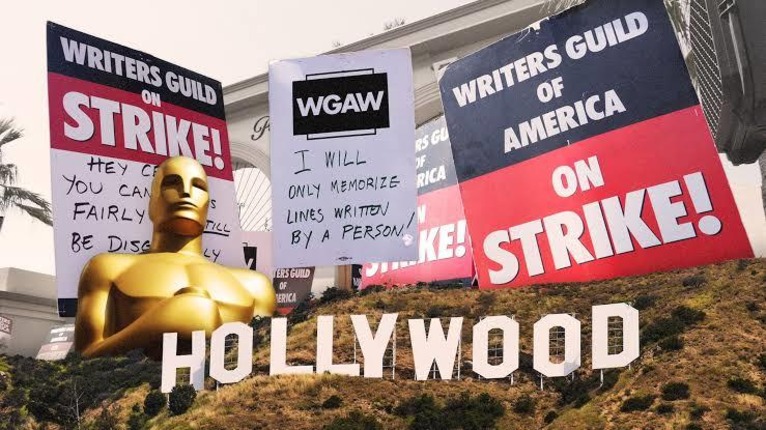The Alliance of Motion Picture and Television Producers (AMPTP) unveiled its proposition for addressing the concerns of striking actors and writers on August 22nd. This proposition included guidelines for the entertainment industry about using artificial intelligence (AI) & data transparency.
The Proposition on AI-related Issues
According to the outlined terms, they must accept generative AI see as a writer. Consequently, any AI-generated content is not eligible for classification as literary work or for safeguarding intellectual property rights.
Furthermore, the proposition establishes that generative AI content will not affect attribution, rights, and compensation matters. Also, companies can employ scripts created by generative AI as source material. Any writer who revises the script will receive compensation equivalent to the original author’s. Moreover, any studio or production company soliciting a writer’s assistance refining an AI-generated script must reveal the source of the original script.
The initial release of the proposal occurred eleven days prior, on August 11th, but lacked substantial details concerning the critical concerns brought forward by the striking factions.
The Proposition on Data Transparency Matters
In addition to addressing AI-related concerns, the proposal also addresses matters related to data transparency. Before the proposal, writers seldom had access to metrics generated by their work.
The revised proposal introduces a provision allowing writers to access viewership data shared through confidential quarterly reports. This data encompasses metrics from subscription video-on-demand (SVOD) services, excluding advertising and transactional video statistics.
Reactions
These most recent advancements occurred on the 114th day of the ongoing strike and represent the latest revisions to the integration of AI within Hollywood studios’ operations.
On May 3rd, the studios turned down the Writers Guild of America’s request for a complete prohibition of AI usage within the writing process. There were additional suggestions put forth, proposing that background performers should undergo scanning. They would then receive payment for the initial workday and relinquish companies’ ownership over the scan, image, and likeness. This particular proposal triggered a strong negative reaction from individuals within the entertainment field.
However, signs of major production companies exploring AI integration remain evident. For example, on July 27th, Netflix advertised job openings related to AI, offering salaries as high as $900,000.
The featured image is from menafn.com









